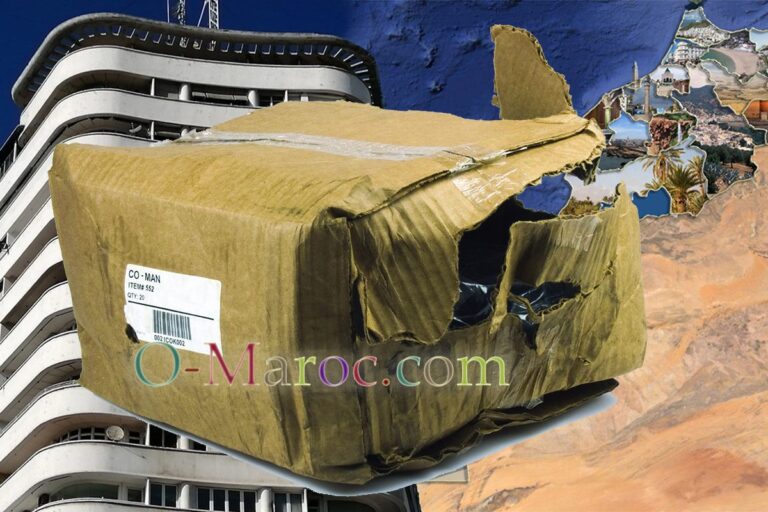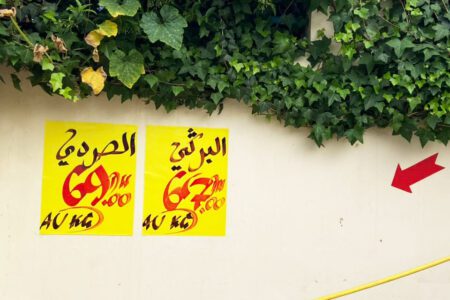What is drop shipping ? It’s the fact, for a company, to sell you a product it does not own nor have in inventory.
You pay the company, the company forwards the order to the original vendor, the vendor sends the parcel to the final customer, and invoices the company.
For the drop shipper, the advantages are huge : no іnѵеntоrу, possibility to have a large offer. And, because the drop shipper has no inventory, he does not have to manage the Moroccan (heavy) importation process, nor pay taxes when the product arrives in Morocco. VAT and tariffs are to be paid by the final customer, when he receives his parcel.
Tariffs and VAT on importation in Morocco
Up to now, the final customers had to pay them only if the value of the parcel was over 1.200 MAD. Under that value, the parcel was available at the normal post office, was not inspected, you could get it without paying 20% VAT and additional tariffs that can be heavy on some products, especially in electronics, textiles, etc.
They are due on products and services. When you are a company, you have to declare them in you VAT record, even for services that don’t go to custom offices. And if you import products, you have to register yourself as an importer, go through portnet, etc. And that has a cost.
Drop shipping and small orders: escaping tariffs, taxes and controls
So people started to play with the system. With the very low shipping costs іnѵоісеԁ by some companies like Ali Express or Shein, it was more interesting to split your purchase in several orders each under this value of 1.200 MAD. You still had to pay in foreign currencies, so if you were not a (wealthy) foreigner with easy access to dollars, euro, etc.
So companies started to play with the system. In particular, two of them, Ѕhеіn and Jumia. They were drop shipping through their website. Jumia offers many items you can find for a lower price on AliExpress, and Shein sells clothes produced in “slavery like” conditions in China, for a ridiculously low price. In parcels under 1.200 MAD.
So people enjoyed the ways they could so easily play with the system.
The “Shein affair” that started everything
Shein has a lot of success in Morocco. I never wanted to buy from them, because of the production conditions and because I try to buy quality clothes and “sustainable fashion”.
But they went over the limit, and, according to this article, sold more than 80.000 pieces the mоnth it started. If they were sold in small parcels, under the 1.200 MAD limit, that means between 8.000.000 and 16.000.000 dirhams escaping the tariffs and VAT, so a loss for Moroccan finances of something between 4,5 and 9 millions dirhams in a month. Around 100 millions dirhams in a year for 80.000 pieces a month.
And Shein was rocketing.
If Shein had imported its products itself and sold them in Morocco, it could not have maintained its low prices. (Which is one of the objectives of tariffs: fight against dumping).
No more franchise on e-commerce purchases
So Morocco reacted: decree n° 2.22.438 states that, from 1st of July on, there will be no franchise anymore on any “electronically purchased good”, in other words, purchases made on foreign e-commerce websites.
It’s a game changer. It’s also the end of drop-shipping (that was never legal in Morocco, but that’s a complex story, no more relevant).
Customers will have the very bad surprise to see the total price of their purchase much heavier than planned.
They’ll have to choose between paying these tariffs and VAT (and VAT applies on tariffs, by the way) or abandon their parcel at the customs. In that case, because small prints always state that the customer is responsible for them, they won’t get their refund.
Does Morocco want to prevent people from importing goods ?
No.
There are a lot of products that can’t be found in Morocco. If I go to Jumia and select “Produits importés de l’étranger” in electronics, there are a lot of things I can’t find in a shop in Morocco.
Morocco just wants that imported products are subjected to the same tariffs and taxes, whatever the sales channel.
Is that rеаѕоnаЬlе ? Yes.
Is that a nightmare ? In general, no. I already have products sent to me that went through the customs. That was not particularly more difficult than in Europe (yes, I also had to go the customs to clear some imported products… )
Is that expensive ? For some products (textile, electronics), yes. And don’t forget that “the rule of origin” applies: even if you buy your product on a European website, if it”s made in China, it will be taxed as a Chinese product.
About Shein and its low prices
Many – most – of the comments on this article complain that they can no longer benefit from Shein’s low prices.
Moroccan products are said to be ‘too’ expensive.
Shein’s working conditions: simply slavery
An investigation by the Guardian has uncovered the reasons why these prices are so low:
- more than 110 hours of work per week (vs. 42 hours/week in Morocco), or 495 hours/month (vs. 191 in Morocco)
- an official monthly salary of 560 €, which goes down to 186 € in case of mistakes on the clothes – and who doesn’t make mistakes when working 18 hours a day?
- so a real smic between 3.75 and 11.3 dirhams an hour, compared to 16.29 dirhams an hour in Morocco (and female workers who reach 11 dirhams an hour are very rare)
Yes, it’s easy to be cheap when you enslave people.
Dangerous products
The dyes used, among others, contain chemicals in doses that are harmful to health (in some cases more than twenty times the authorised limits).
A nice cheap jacket for your baby? Yes, but with 20 times the permitted amount of lead… for example.
Shein or the others, same problems
Whether it’s Shein, Zara’s subcontractors or electronics manufacturers, all the big Chinese factories operate on the same principle.
There was a time when Moroccans did not like Chinese products because they found them of poor quality. They have totally forgotten this by being able to buy them at low prices.
One can close one’s eyes to be complicit in this kind of slavery and benefit from it. Or not.
New investigation confirms risks of Shein products
This time it was Greenpeace Germany that had 47 products sold by Shein tested.
15% of them contained dangerous chemicals at levels higher than those accepted in Europe:
- formaldehyde, a carcinogenic gas that makes you “sleep” in a little girl’s dress
- phthalates, which are endocrine disruptors with a negative effect on fertility, in shoes
More information
- Influencer Gets Canceled After Praising Shein's Working Conditions While Touring Their Factory And Calling Herself An 'Independent Thinker'
- Shein seems to be annoyed by the information about how it treats its workforce and the bad quality of its products. But the organization of a "Potemkine Tour" of a modern unit generated more backlash than expected !
 A typo or syntax error? You can select the text and hit Ctrl+Enter to send us a message. Thank you! If this post interested you, maybe you can also leave a comment. We'd love to exchange with you !
A typo or syntax error? You can select the text and hit Ctrl+Enter to send us a message. Thank you! If this post interested you, maybe you can also leave a comment. We'd love to exchange with you !




